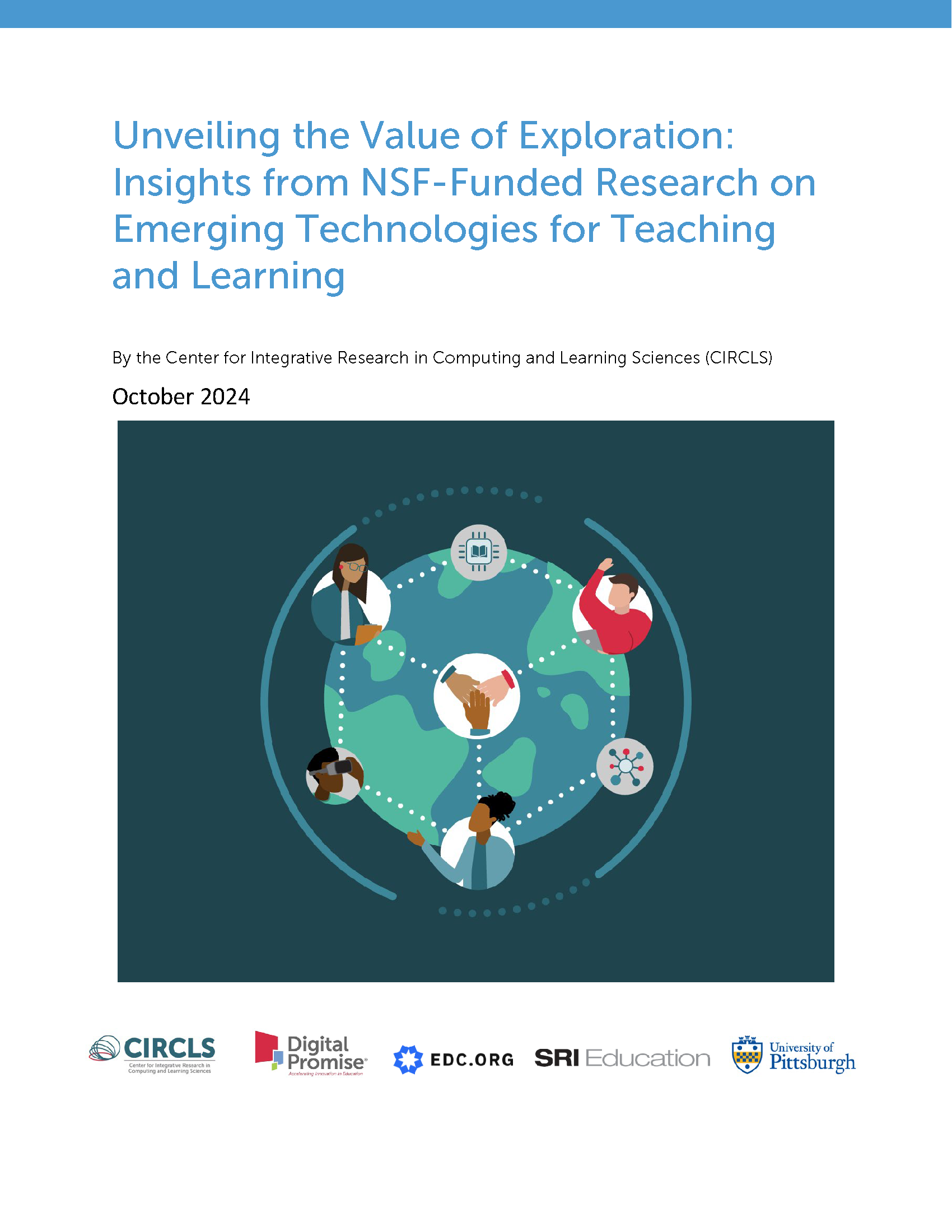- Executive Summary
- Introduction
- The CIRCLS Community
- Portfolio Analysis
- Bibliographic Analysis
- Field-Driven Research Synthesis
- 1. Exploration and Discovery
- 2. Equitable Co-Design
- 3.Emergent Impact
- 4. Discussion: Key Ideas
- Practitioner Reflections
- Recommendations
- Acknowledgements and Citation
- Appendices
Field-Driven Research Synthesis: Understanding the Character of Innovative Interdisciplinary Exploratory Research
In December 2023, NSF asked the CIRCLS team to conduct a research synthesis to understand the unique value of interdisciplinary, exploratory research by examining NSF’s Cyberlearning and RETTL/RITEL program portfolios (referred to hereafter as NSF EXPs) from 2017 to the present. This synthesis focuses on better understanding what PIs learned from their exploratory projects, including what evolved from that work. Our review of project social networks, PI surveys, keyword maps, project abstracts, and publications informed the selection of PI interviewees across key topics: Artificial Intelligence (AI), Virtual and Augmented Reality, Collaborative Learning, Accessibility and Learning, and Simulations. In June 2024, we completed interviews conducted with 17 PIs across these topics (Appendix B).
Interview Process and Analysis
Each interviewee was selected for their project’s contribution to the portfolio, specifically in terms of innovation, interdisciplinarity, equity, and co-designed exploratory research. Initially, we recruited 33 PIs from 30 NSF-funded projects. Of these, 17 PIs from 15 projects (50%) agreed to participate in 60-minute semi-structured interviews.
The interviews aimed to gather PIs’ perspectives on the value and impact of engaging in interdisciplinary, exploratory research through NSF EXPs. They explored opportunities, challenges, and lessons learned. Each interviewee was asked the following questions:
- What was your original project funded through NSF EXPs?
- What was important about having the opportunity to do interdisciplinary, exploratory research?
- What were some important challenges and lessons learned from your work?
- What opportunities arose from your interdisciplinary, exploratory research?
- What CIRCLS opportunities helped move your work forward?
We analyzed the interviews thematically using first and second cycle coding, directed content analysis, and constant comparative discussion. This approach allowed us to identify, consolidate, and develop insights into the nature and value of innovative interdisciplinary exploratory research across three themes:
- Exploration and Discovery Across New Frontiers: How CIRCLS PIs investigated emerging technological possibilities by engaging with partners to generate ideas across disciplines
- Equitable Co-Designed Learning and Practice: How CIRCLS PIs created contextually rich, iterative, learning spaces via co-design and other equity-focused practices
- Emergent Impact Through Networked Communities: How CIRCLS PIs mobilized networks to support broader impacts through innovation and expansion
We elaborate on each theme in the sections listed above. Project artifacts and resources are hyperlinked throughout and included in Appendix B.


 Download the Report (PDF)
Download the Report (PDF)